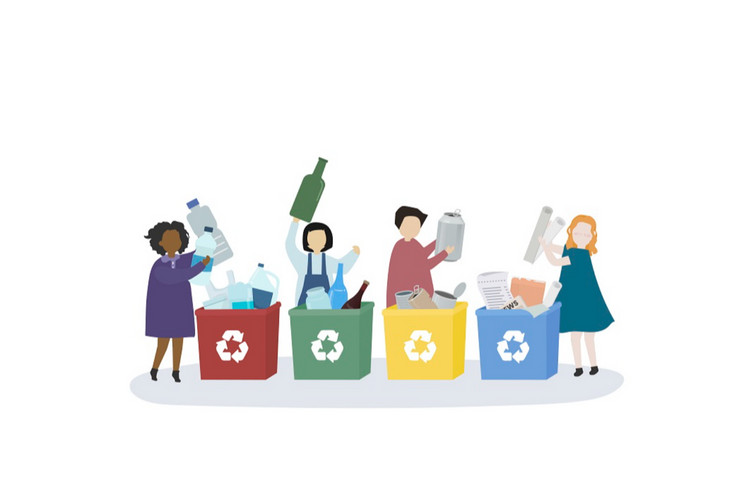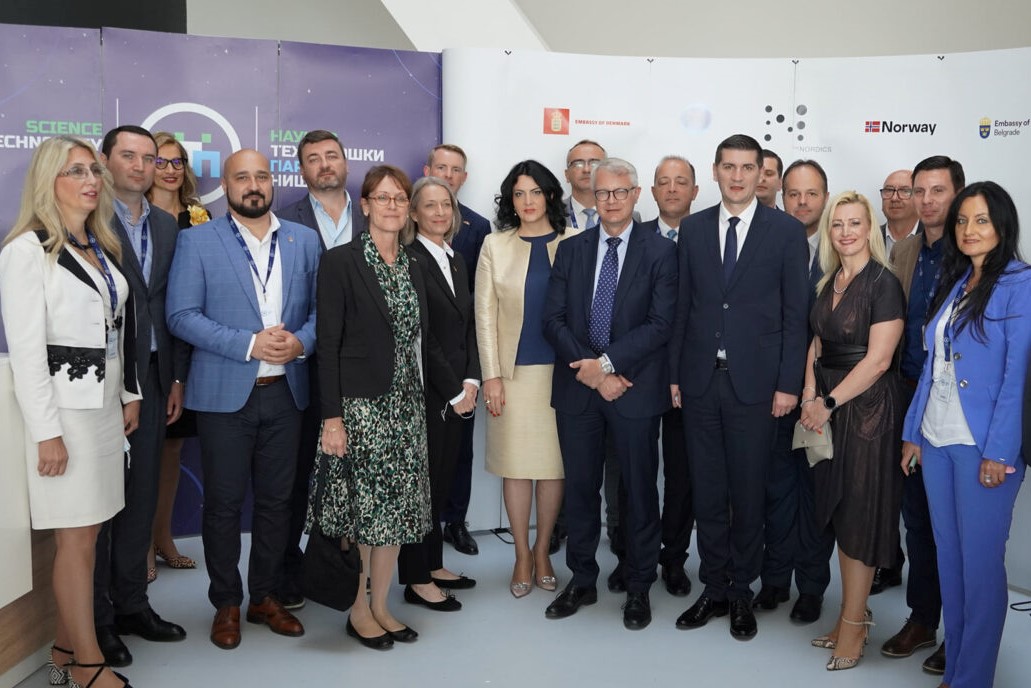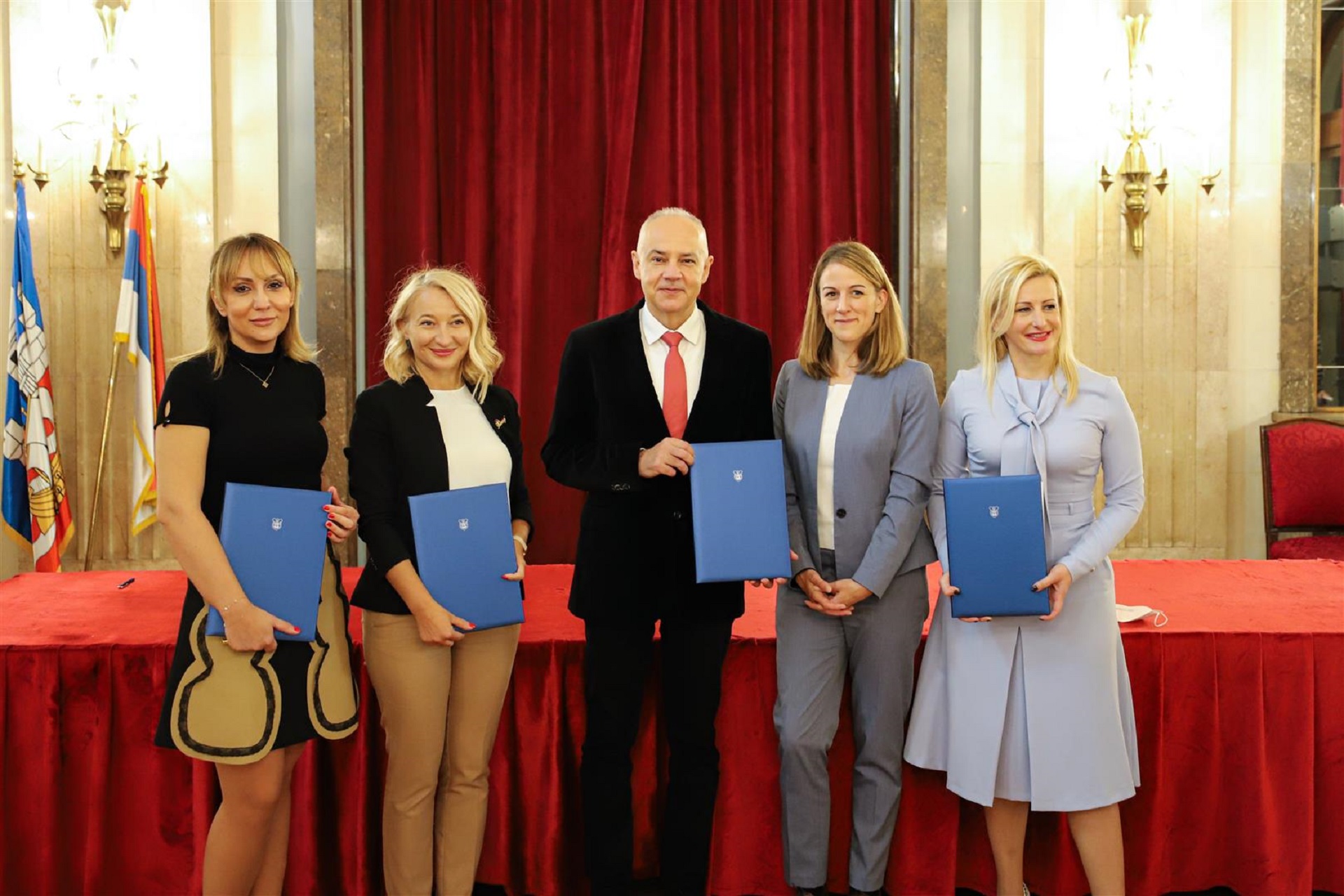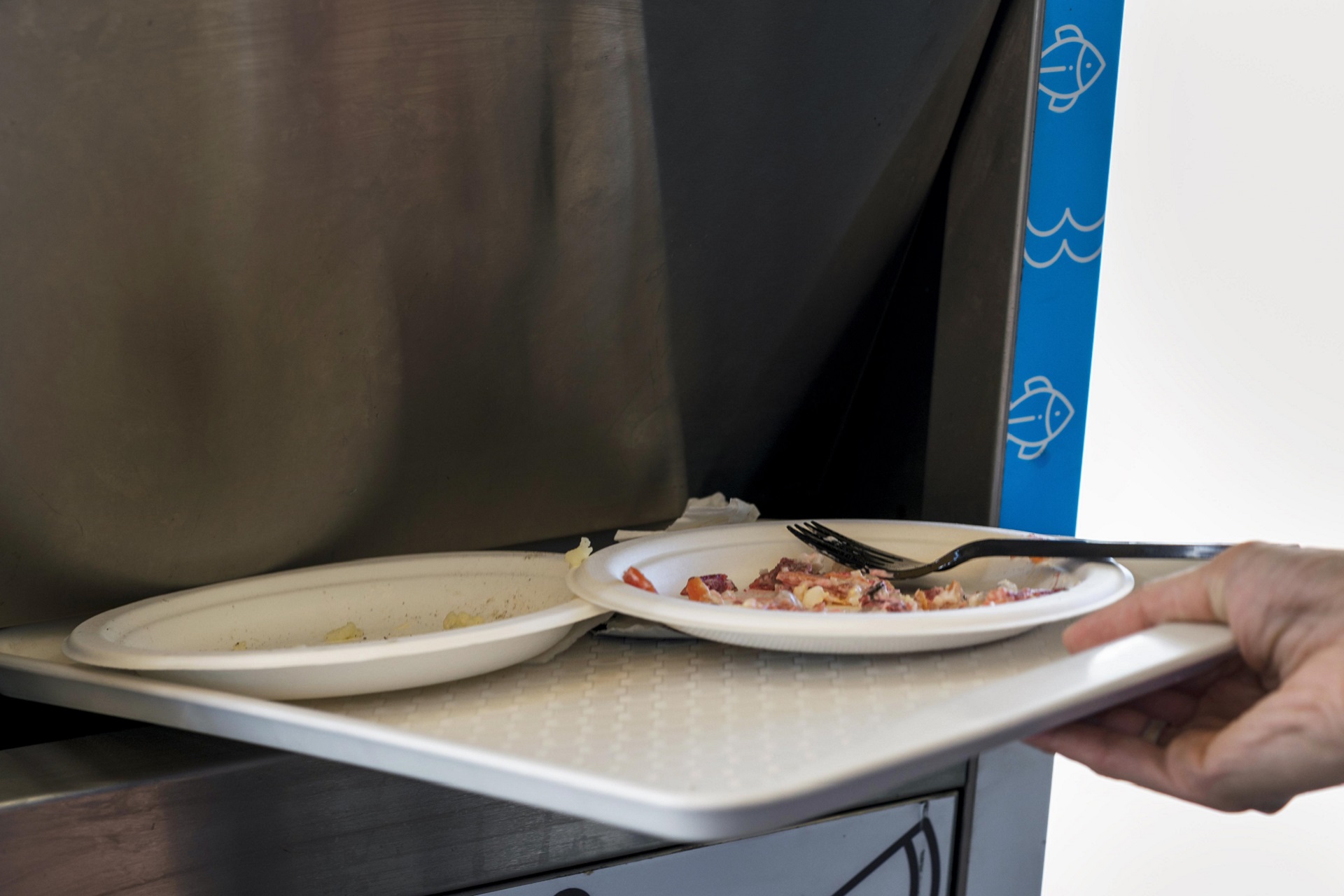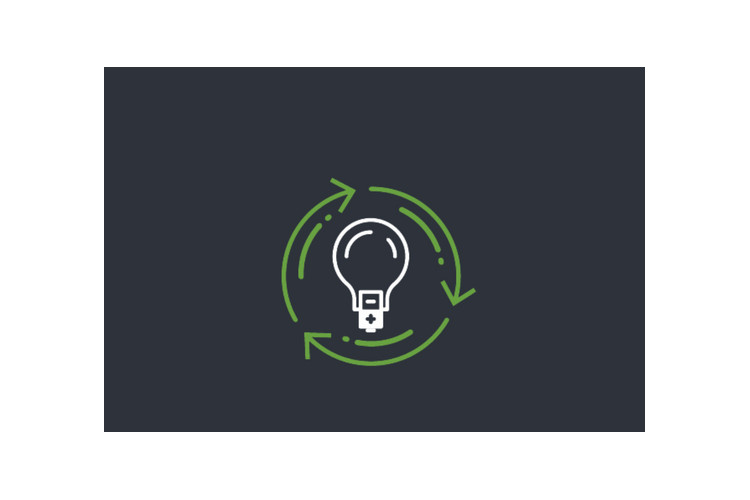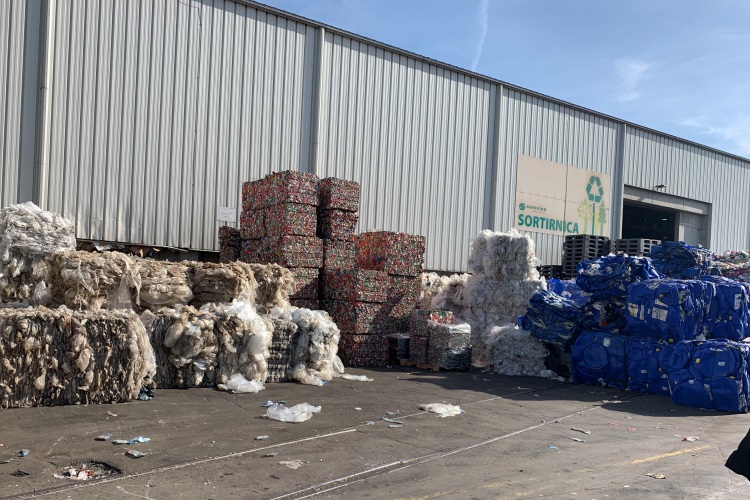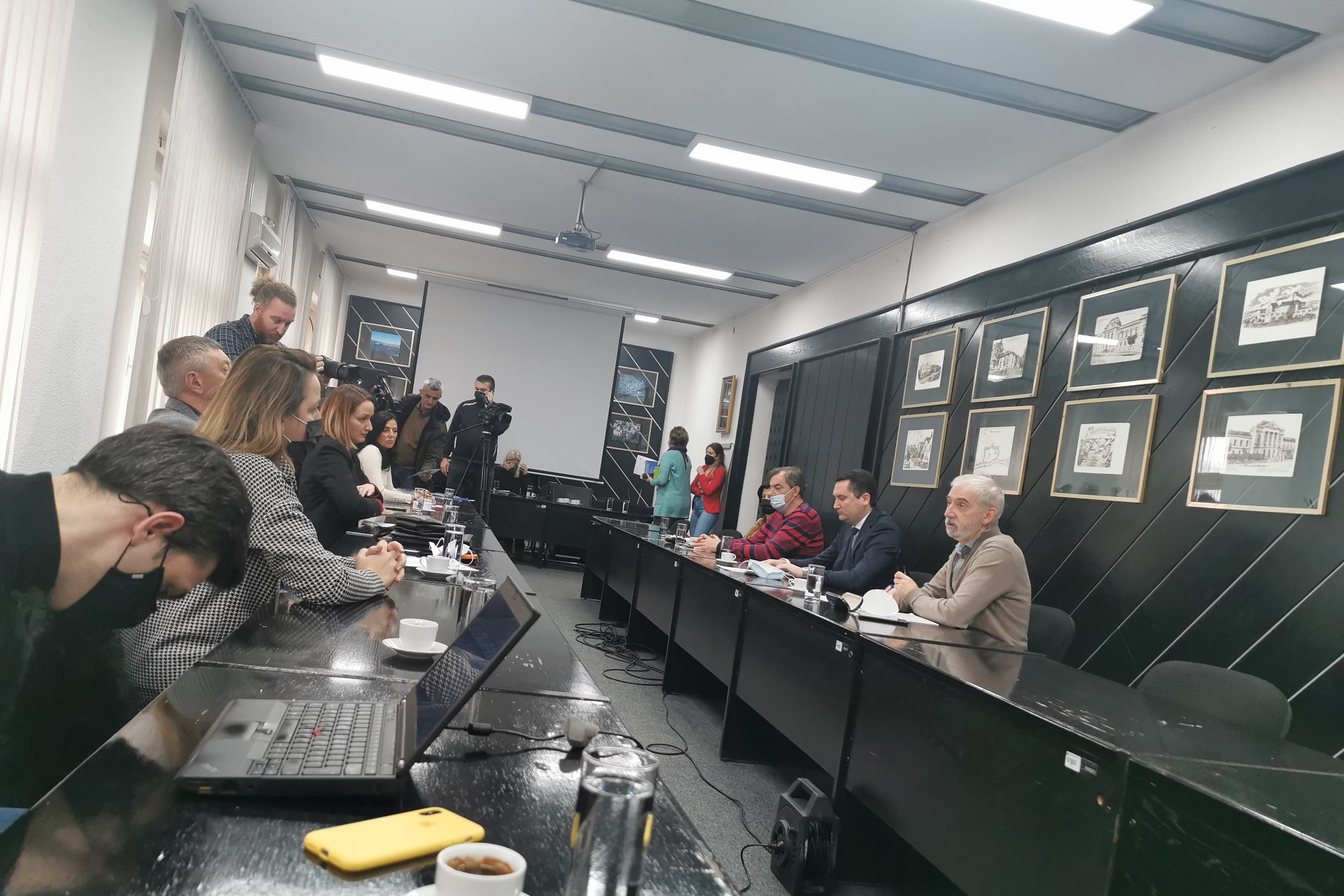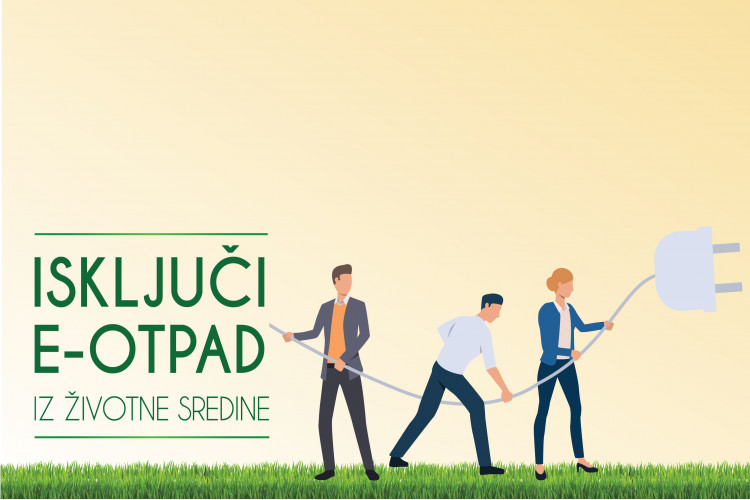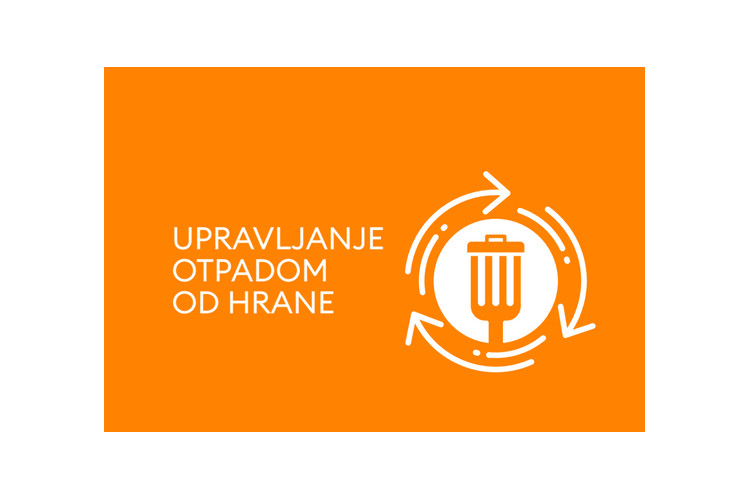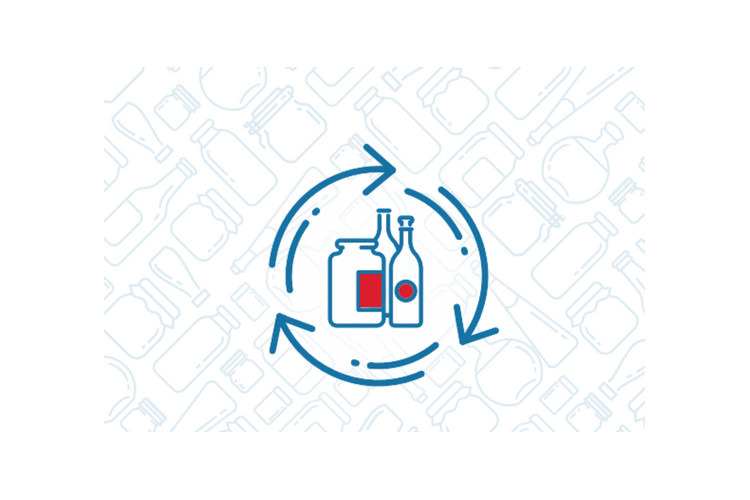Environment protection
The topic of environment protection has been in NALED’s focus since 2018, when the first project dealing with this topic was launched with the support of German Development Cooperation, Gorenje and Coca-Cola HBC, with the aim of improving electrical and electronic waste management in Serbia. At the initiative of numerous companies, local governments and membership associations, at the end of 2019 NALED founded the Environment Protection Alliance, whose founding charter states that environmental protection should take a high place on the list of priorities of the state, businesses and citizens, and that society as a whole needs to get involved in order to make progress. Together with members and partners, NALED then provided support for a number of projects aimed at improving the conditions for the collection and recycling of various waste streams.
The main problems identified by the Alliance are unsustainable financing models for environmental projects (the Green Fund has been shut down and its alternative has not yet been found), vaguely defined fees for the use of public goods and lack of data on pollution sources. In addition, wastewater management is inefficient, treatment technology is outdated, and the introduction of new systems is delayed because it requires large investments. City and municipal administrations do not have adequate capacities to successfully respond to all the challenges that are set before them by law. The problem is that the regulations in Serbia are still not fully harmonized with the regulations of the European Union in the field of environment protection. Air pollution in Serbia is 20 times higher than in the countries of the European Union, and revenues from eco-taxes and fees are insufficiently invested towards solving the problem.
Better eco-tax and fee policy
In order to encourage companies to reduce the negative impact on the environment, NALED advocates the introduction of higher fees for major polluters, expanding the number of harmful gases that are taxed and changing the incentive system. These recommendations are also part of the Analysis of the Success of Fiscal Instruments in Pollution Reduction, whose full implementation would provide an additional 18.5 million euros in the budget for environment protection, while the Alliance has prepared a draft analysis of environmental taxes and fees with recommendations for system improvement, as well as a recommendation for a sustainable solution for the Green Fund (within the Grey Book for 2021).
Glass waste
It is estimated that each citizen places about 51 kilograms of packaging waste on the market annually, and a significant percentage refers to glass packaging waste, whose complete processing cannot be performed in Serbia due to lack of capacities. While EU members recycle 70% of glass packaging annually, in Serbia the share is only 48% - and the key reasons are insufficient number of containers, lack of knowledge about recycling benefits and lack of recycling plants in the country, which is why glass packaging must be exported to Croatia or Bulgaria. That is why most of the used glass in Serbia ends up in landfills or illegal dumps, where it takes more than 5,000 years for glass to decompose.
With the aim of establishing a sustainable system for the treatment of spent glass packaging, NALED is implementing a regional project "Management of glass packaging in the Western Balkans" through which donated 300,000 euros for the first 600 containers in Nis, Sombor, Kragujevac and Varvarin as part of the necessary infrastructure for proper management glass packaging waste. The project is also being implemented in Northern Macedonia and Bosnia and Herzegovina.
Food waste
According to estimates, about 247 thousand tons of food are thrown away in Serbia every year, i.e. about 30-40 kg per capita. In the domestic catering sector alone, about 40,000 tons of food waste accumulate annually, and the consequences of its disposal in landfills are major because it releases large amounts of greenhouse gases, such as carbon dioxide and methane.
Through the project "Food Waste Management in the Republic of Serbia", NALED is working on raising awareness of all food waste producers about responsible management of this waste, as well as educating inspections on this topic. The project prepared a draft rulebook that would oblige all institutions that put more than 50 meals a day on the market, such as restaurants, hospitals and dormitories, to apply a special classification of this type of waste. Due to the great impact of the COVID hospitality sector with the crisis, advocacy has been postponed until the end of 2021.
Batteries and light bulbs as hazardous waste
The goal of the project "Increasing the recycling rate for batteries and light bulbs in the Republic of Serbia" is to increase the recycling rate of this hazardous waste by 20% in the next few years – the project stipulates installment of containers for their disposal at selected faculties of Belgrade University and in public institutions in the City of Kragujevac.
According to the data of the Environmental Protection Agency, about 100 tons of light bulbs are recycled annually in Serbia, which is only 10% of the total amount of imported light bulbs. In 2020, only 17,173 kilograms of waste batteries were exported to Germany for recycling, and according to unofficial data, every citizen of Serbia uses a kilogram of batteries annually. Both are usually disposed of in containers for municipal waste, and then end up in landfills, where due to high toxicity they lead to environmental pollution and can easily reach the food chain. That is why batteries, as well as light bulbs, are hazardous waste that poses a significant threat to the environment and human health.
Related Content
Circular Economy
16.04.2020
The project will generate a part of the circular economy program ...Read moreCircular economy and the environment - development opportunity for cities in Serbia
06.10.2021
The second session of Business Friendly Club of cities and municipalities in...Read moreCity of Belgrade joins
29.10.2021
After the installation of the first 600 containers in Sombor, Nis, Kragujevac and Varvarin, the citizens of Belgrade will also be able to...Read moreThe action of collecting 1,000 tons of food waste continues
05.11.2021
The challenge of collecting 1,000 tons of food waste initiated by GIZ, NALED and...Read moreIncreasing the recycling rate of batteries and light bulbs
09.01.2020
Inadequate disposal of waste whcih poses danger to the environment, results in...Read moreEnvironment Protection Alliance
In late 2019, NALED founded the Environment Protection Alliance as a program platform that will bring together decision makers and experts...Read more
Recycling of batteries and light bulbs initiated in Kragujevac
16.12.2021
Used batteries and light bulbs in Kragujevac no longer have to end up in...Read moreElectric and electronic waste management
28.10.2019
Creating the conditions for proper collection, disposal and recycling of e-waste...Read moreFood Waste Management
08.10.2019
Improving regulations and governing the bio-waste flows with the support of GIZ ORF - develoPPP program...Read moreGlass packaging management in the Western Balkans
09.01.2020
Model for developing glass recycling infrastructure...Read moreThis website uses cookies to ensure the best user experience. By continuing to browse the site, you consent to the use of cookies.
CONTINUE LEARN MORE
